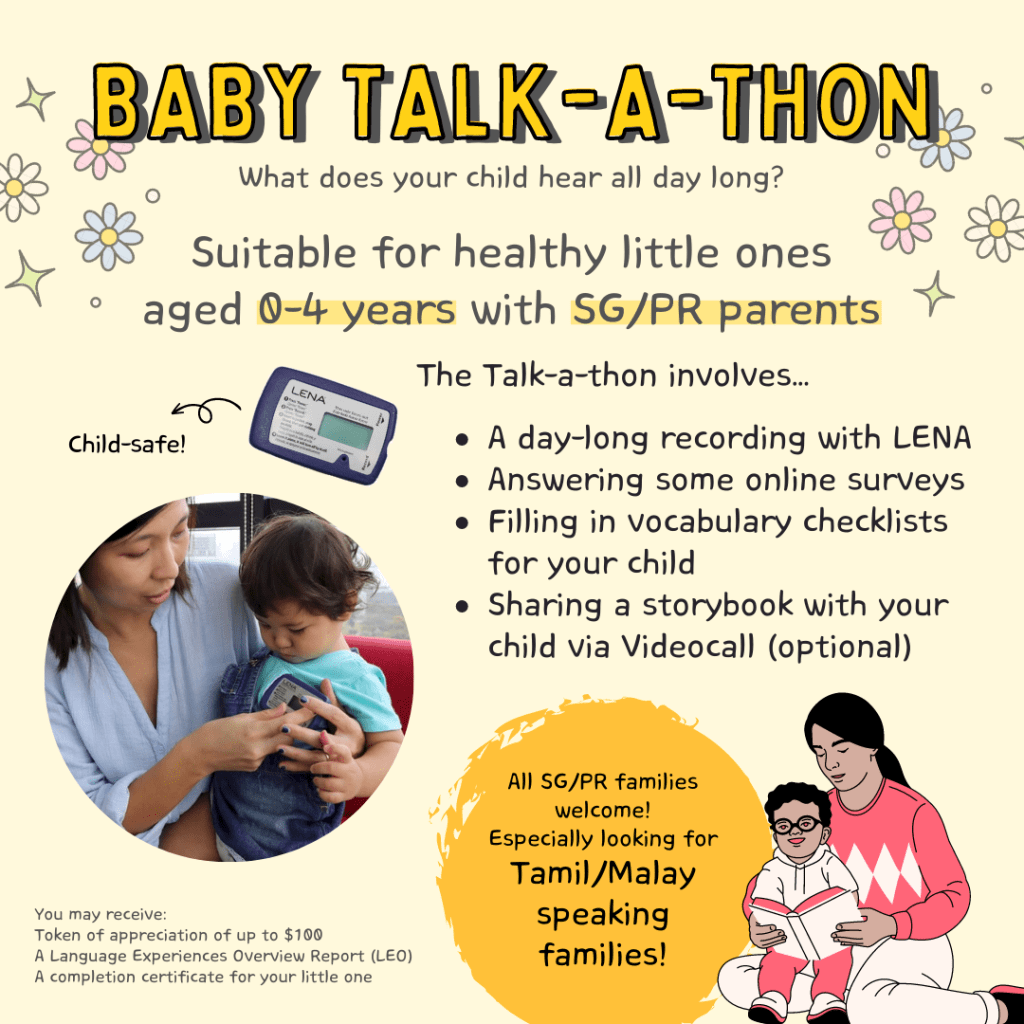In Singapore, being bilingual is not uncommon due to the nation’s language policy to learn English as well as one mother tongue language. As such, most if not all children are brought up in bilingual environments where English and another mother tongue language are used at home. Depending on how often the languages are used, these interactions allow the child to be exposed to both languages and learn how they are related, e.g., knowing ‘bowl’ in English and ‘mangkuk’ in Malay.
A review by Hambly et al. (2012) compared studies investigating the influence of bilingualism on speech production. The main aim of the review was to look into the existing knowledge about the impact of bilingualism on children’s acquisition of speech in English and how this could help identify and treat speech sound disorder in bilingual children.
What did they find?
- Among the findings gathered, bilingual children in general do not actually develop speech slower than their monolingual peers.
- Studies found mixed results when comparing how bilingual and monolingual children with and without speech sound disorder acquire speech.
- It is difficult to conclude if exposure to two languages in childhood is advantageous or disadvantageous.
- Speech acquisition is qualitatively different in monolingual children compared to bilingual children. Particularly, children learning language in a bilingual environment make different sound errors and acquire sounds at different rates in comparison with their monolingual peers (Hambly et al., 2012).
It might be useful to note that many of these studies are conducted in places where monolingualism is the norm and bilingualism is the exception, which means that the findings may not represent the way children learn and use language in Singapore. However, the main takeaway suggests that there doesn’t seem to be concrete evidence that being bilingual is detrimental to a child’s language development.
Having said that, it appears to be increasingly common in Singapore in recent years for English to be used more heavily at home and with friends. This is possibly due to the ease of communication and accessibility since the use of mother tongue languages, especially in their formal versions, are usually limited to academic settings. Thus, children these days may find difficulty following through with mother tongue lessons in school as they have less exposure and interaction with their respective mother tongues on a daily basis at home.
How, then, can we inculcate mother tongue language use in everyday life? Parents can step up in this area by allowing their children to see the value in learning their mother tongue by relating simple words or concepts at home to their mother tongue. For example, teaching their children how to say phrases like ‘I took the bus to school’ or ‘I ate noodles for lunch’ in their respective mother tongue languages. By interacting with the language that way, they will likely feel less distant with the language and begin to appreciate their mother tongue more. It has also been an initiative carried out by libraries and language councils to promote the use of language through festivals like Bulan Bahasa (Malay Language Month) to encourage the community to embrace the use of Malay language in their daily lives.
This post was written by our Intern, Aqilah, and edited by our research staff, Shaza and Dr Rui Qi!
We’re still recruiting families (especially Malay and Tamil speakers) with children between birth to 4 years old for our Baby Talk-a-thon! If you’re keen to take part, you can register your interest here: https://ntusingapore.qualtrics.com/jfe/form/SV_868i1NIkpvf00QK
Want to help contribute to kinship terms as used in Singapore? Why not help us compile a list of all the terms we call our family members in all our languages! Participate here: https://ntusingapore.qualtrics.com/jfe/form/SV_6WgBjxXcjSM3IvI
Follow us on Instagram @bliplabntu!
Watch this space for updates or follow us on Facebook: https://facebook.com/bliplabntu

